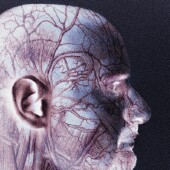Cholesterol-Stroke Relationship Puzzles Researchers
High blood-fat levels not always linked to higher stroke risk, studies show.
By Ed Edelson
HealthDay Reporter
|
E-mail this article
Subscribe to news
Printer friendly version
|

(SOURCES: Sarah Lewington, Ph.D., senior research fellow, Cambridge University, England; Deepak Bhatt, M.D., associate director, Cleveland Clinic, cardiovascular coordinating center; Dec. 1, 2007, The Lancet)
FRIDAY, Nov. 30 (HealthDay News) -- The link between high cholesterol and heart disease is clear to most in the medical community, but a new British study finds the connection between cholesterol levels and stroke is a bit more murky.
In fact, for people in their 70s and 80s, the review found that high cholesterol actually lowered stroke risk, even as it boosted the odds for heart attack.
The analysis of 61 studies showed that "there is something very odd going on" in the link between blood cholesterol and stroke mortality, said study author Sarah Lewington, a senior research fellow at Oxford University.
However, "these data shouldn't make people stop taking statins, because it's been shown that statins reduce the risk of stroke," she said.
Statins include cholesterol-lowering drugs such as Crestor, Lipitor and Pravachol.
In its review, published in the Dec. 1 issue of The Lancet, Lewington's team surveyed data on almost 900,000 adults who had no heart disease at the start of the studies.
As expected, they found that the drop in blood cholesterol levels achieved with statin therapy more than halved the heart disease death rate in the 40-49 age group, decreased it by 34 percent for those aged 50-59, and achieved a 17 percent reduction in the 70-89 age group.
The reduction in heart deaths was lower in people with high blood pressure, since the effects of blood pressure and cholesterol are independent of each other.
In contrast, total cholesterol levels were related only weakly to stroke mortality for the 40-59 age group. That relationship could be explained almost entirely by cholesterol's association with blood pressure, the analysis found.
And in the 70- to 89-year-old age group, higher cholesterol levels were actually associated with a lower stroke death rate, particularly for people with a systolic blood pressure (the top number in a reading) above 145 mm/Hg -- a finding that left Lewington puzzled.
"Maybe we're not measuring the right thing," she said. "Maybe it's more complicated than that."
An accompanying editorial by two stroke experts at Denis Diderot University in Paris offered one statistical explanation. It suggests that the combination of high cholesterol and elevated blood pressure might have killed off the most vulnerable part of the study population before their eighth decade -- leaving a hardier group of people behind.
Lewington said she wasn't prepared to join in on those speculations.
One expert said he isn't surprised by the findings, since stroke is a more complicated condition than heart attack.
Dr. Deepak Bhatt is associate director of the Cleveland Clinic's cardiovascular coordinating center. He noted that while heart attack has a single cause -- buildup of fatty deposits that block a coronary artery -- a stroke can be caused by a blockage in a carotid artery (a main blood vessel to the brain), a clot in an artery within the brain, a rupture of an artery, or an irregular heartbeat called atrial fibrillation that sends a clot to the brain.
There's also another scenario, in which someone survives a stroke but is so weakened that he or she quickly succumbs to heart disease, Bhatt said. In such cases, stroke is not even mentioned as the cause of the death, he said.
All this "can create something of a messy picture that can lead some people to conclude that control of cholesterol is not important for stroke prevention," he said. However, "from the patient's perspective, nothing here contradicts the fact that if they have high cholesterol, they should get it treated. It would be bad if the public gets a mixed message," Bhatt stressed.
More information
There's more on preventing stroke at the U.S. National Institute of Neurological Disorders and Stroke.
Copyright © 2007 ScoutNews, LLC. All rights reserved. 
HealthDayNews articles are derived from various sources and do not reflect federal policy. healthfinder.gov does not endorse opinions, products, or services that may appear in news stories. For more information on health topics in the news, visit the healthfinder.gov health library.